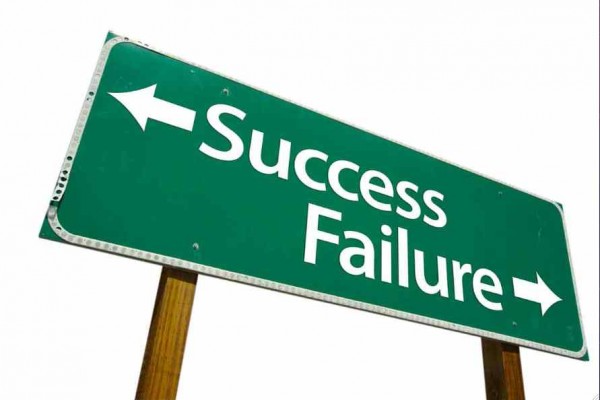Your perspective of failure is a great determinant of success. When you encounter some form of setback, you need to see the bigger picture instead of judging events and situations that occur in your life independently.
Change your perception of failure. Have a different perspective towards it. This perspective will lead to perseverance. Perseverance brings longevity and longevity brings opportunities for success. If you have a dream, and hope to realize it, failure is unavoidable. However, failure is not a dilemma between the devil and the deep blue sea; it’s an opportunity to begin again, more intelligently, and you should know that every human can make it through failure.
To make it through failure; you need to understand how it works. Here are 5 things you need to know about failure:
1. Failure is inevitable.
Everybody makes mistakes. No one is an exception when it comes to erring. However, seeing these mistakes as lessons rather than setbacks is the most important thing. As long as you are human, mistakes are bound to happen. The first step to living past your challenges is tell yourself that there are no mistakes; only lessons. Wrong decisions will lead to failure. The important thing is to learn from these mistakes/lessons. Until you learn from these lessons, you’ll keep repeating them. When your actions change, you can be sure you have learnt the needed lesson.
2. Failure is not an event.
Failure is not an event and success is not a destination. For instance, when a student scores F in an exam, it is perceived that this student has failed. Scoring an F in the exam, is not an event. The F is a result of the actions and inadequate preparation of the student. However, a student scoring an F is not a lifetime event. There will be opportunities to take the exam all over again, to be adequately prepared and have the opportunity to score a better grade. The only time it is safe to conclude that you have failed is when you take your last breath. As long as there is life, you have the chance to keep working at success.
3. Failure is subjective not objective.
What is your definition of failure? Is failure dependent on the number of times you have made that mistake or is it dependent on the magnitude of the mistake? You are the only one who can put a label on your mistakes. Your failure is determined by your reaction and perceptions to your actions. Failure is subject to your perceptions and reactions to happenings. Research shows that entrepreneurs have a 3.8 average of failure before they are finally able to make it. You can learn a lesson from their perseverance. Start looking at failure this way: three steps forward and two steps backward. You have moved one step forward.
4. Failure is not the foe.
People have the misconception that failure is a plague so they try to run from it as much as possible. They breathe the fear of failure; they forget that adversity breeds success. Failure is your one guarantee at learning. If you observe high achievers, you’ll discover that they don’t see mistakes as enemies, rather they view them as stepping stones.
5. Failure is not permanent
There’s the popular adage “stop crying over spilled milk”. This adage can be looked at from the perspective of failure. When you do something and it doesn’t turn out right, don’t cry over the spilled milk. Look at the bigger picture. You can clean up the mess and be more careful with the milk next time. If you aim to become an achiever, mistakes shouldn’t make you give up and you shouldn’t see success as a destination. Always see the bigger picture and keep working hard. Some circumstances might appear to be great failures but this should not deter you from achieving what you want. You don’t have to be right all the time; the important thing is for you to learn all the time and keep producing results as you go.
About the author: Chris Bamidele is a passionate and unapologetic Nigerian, who believes in God and humanity. He is a writer, blogger, and an aspiring Television Director; and an optimist to the core. He blogs at www.chrisbamidele.wordpress.com and tweets @Chrisbamidele.


